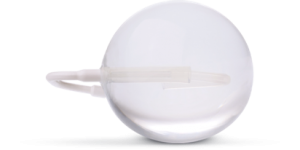Seasonal Affective Disorder, commonly abbreviated as SAD, is a mental health condition that is characterised by mood changes. Its effects often come to life during winter and have earned itself the name ‘winter depression’ or ‘winter blues’. According to research, it is highly attributed to the lack of sunlight or as an additional diagnosis of depression or bipolar disorder. With winter already here, SAD won’t be uncommon. But don’t worry; you can combat it healthily. Here is how!
1. Light Therapy
Winter is a season that experiences long periods of darkness and short spans of light. Even when the outdoors have some light, it may be hard for you to get out due to the cold weather conditions. As mentioned earlier, this is among the major reasons for SAD.
To combat this, you need to indulge in light therapy. Research shows that getting a daily dose of bright light in the morning is a great mood booster. It helps compensate for the lack of natural light, warm your brain, and regulate your emotions.
You can purchase bright light-emitting lamps or light boxes in your preferred online stores. Get 20 to 60 minutes of exposure daily and watch your body transform.

2. Get Some Sun
The most common seasons for seasonal affecting disorder are winter and fall. This is because these two seasons experience a shortage of natural sunlight. However, some areas still experience a few hours of sun. If you are in such an area, endeavour to soak up in sunlight daily. Natural light has been proven to increase the serotonin levels in your brain, thus regulating your moods. With increased serotonin, you become happier and less sad (literally).
3. Exercise
Body activity does the human brain and body a huge favour. While most people use exercise for weight loss and staying fit, not many know its impact on mental health conditions. The body has a set of feel-good chemicals, including endorphins and serotonin. Upon exercising, your body causes the brain to release them thus improving your mood.
The above reason is why most people report an elevated mood after physical activity. Even better, getting active is highly involving. You will need to get out of bed or your comfort zone; thus, it is a healthy distraction from negative thought patterns.
Generally, exercising can be tiresome and tasking. It gets a little more difficult during winter following the weather conditions. The trick here is to consistently show up for your exercise every day, even when your body doesn’t feel like it. Find exercises you enjoy and move the body in a way you feel good doing. It doesn’t have to feel forced or boring.
4. Minimise Junk Foods
We cannot talk about exercising without the diet aspect. These two go hand in hand, as SAD affects weight loss. If you were on track for weight loss, you may slow down and consume more junk food during your seasonal affecting disorder (SAD) period.
Numerous studies show that physical or emotional distress causes a spike in consuming foods high in fats, sugars, or both. Your body may have high cortisol and insulin levels, which makes you constantly feel hungry. Considering the seasonal affecting disorder, you will likely grab the quickest meal you can fix. Another reason is the low serotonin levels, which increases ghrelin (hunger hormone).
Besides reducing the intake of junk, you must also incorporate quality stress management techniques. Your body may be overwhelmed, and the seasonal affective symptoms may show up as hunger. By keeping stress at bay using yoga and meditation, you can stabilise your cravings.
Everything begins with a reduction. We know how hard it can be to instantly eliminate the junk food in your cabinets, which is why we recommend using an adjustable gastric balloon system. This keeps you feeling fuller for longer, thus reducing junk cravings. Again, remember the end goal and do it for yourself even when you don’t feel like it.
Spatz helps you to combat seasonal affecting disorder

Seasonal affecting disorder, though short-timed, is a condition that can take a toll on the quality of your life. With winter, most people are confined to their homes, making life a living hell. As you can see, there are various ways to combat SAD. Most of them involve getting up and getting active. If you are stranded on where to begin, you can always get help from a healthcare provider. Above everything else, consistently exercise and diet, even when it seems tough. You’ll get through this!
As obesity has an impact on mental health, Spatz3 adjustable gastric balloon can be a solution to implement healthy habits.


